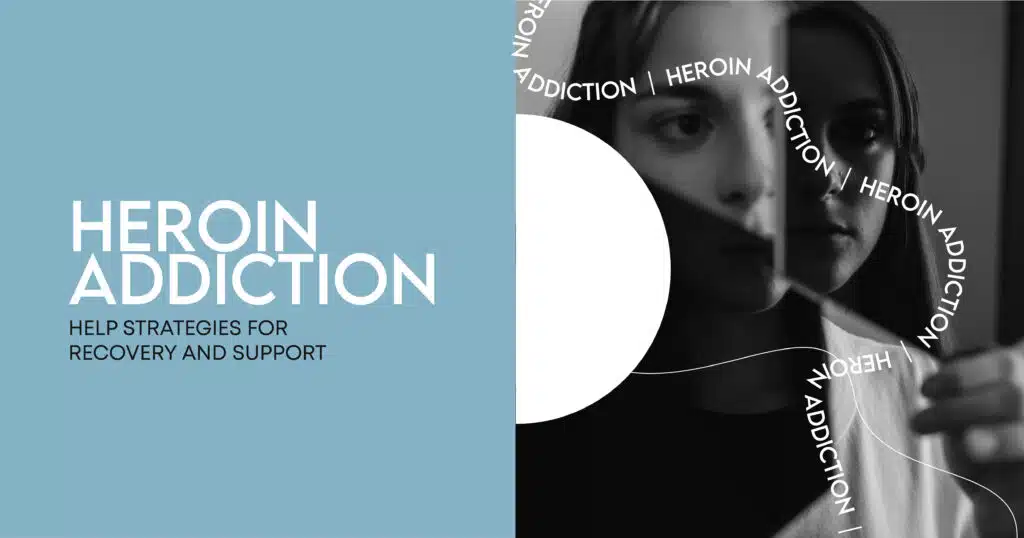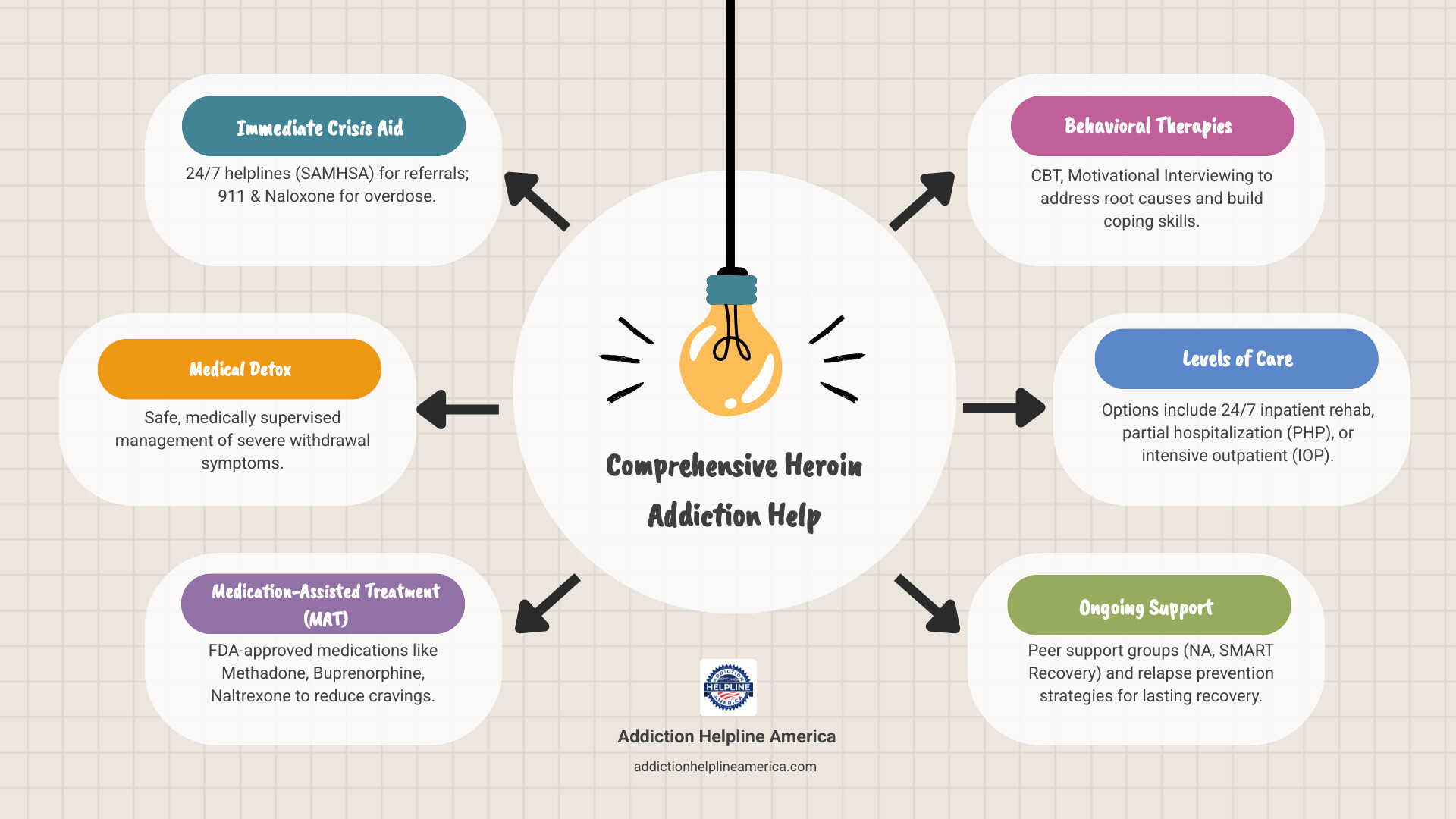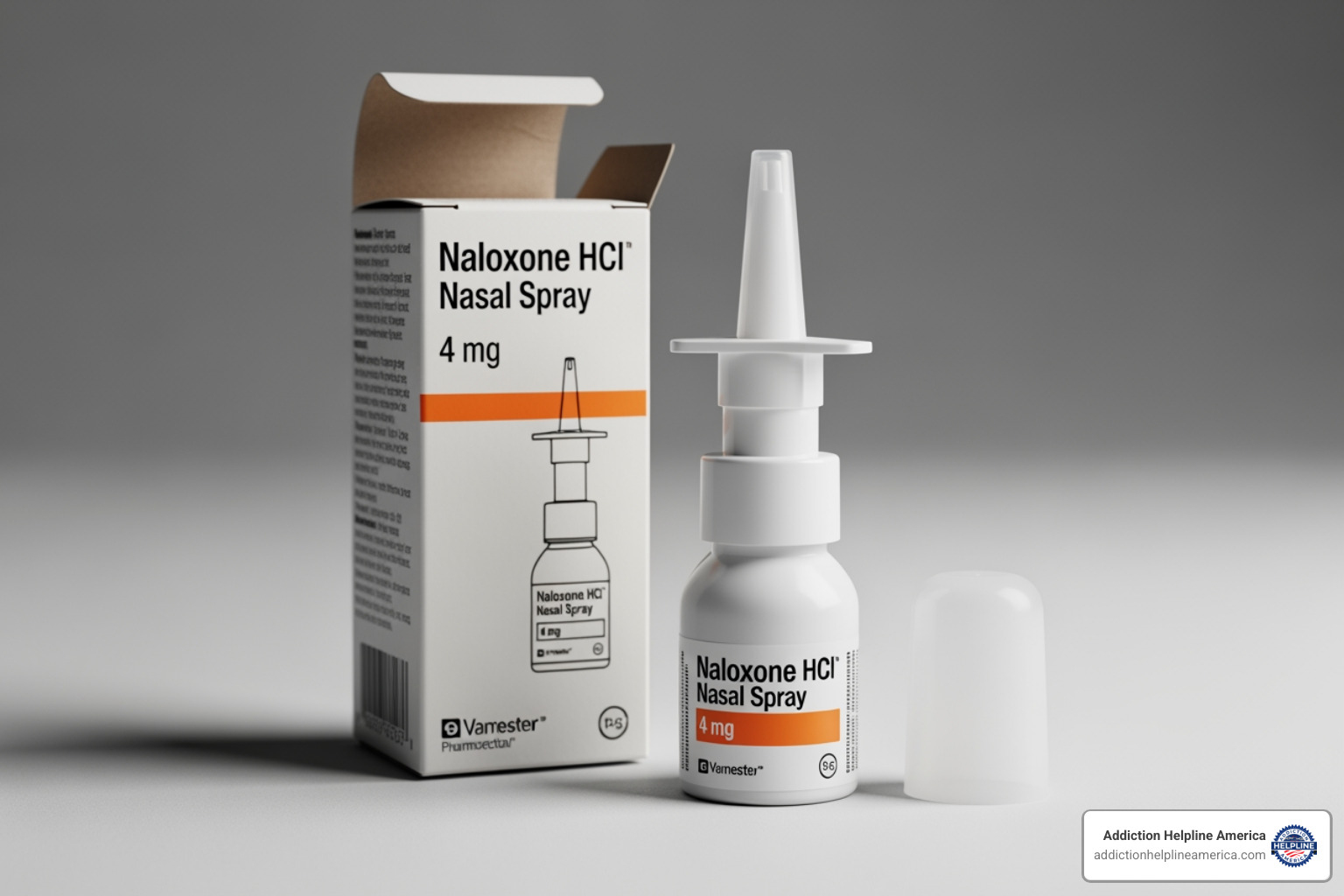
Why Immediate Heroin Addiction Help is Critical
Heroin addiction help is available, and understanding your options can save a life. Whether for yourself or a loved one, help is accessible through multiple pathways.
Immediate Help Resources:
- 24/7 Helplines: Addiction Helpline America at 1-844-561-0606 offers free, confidential treatment referrals.
- Emergency Overdose: Call 911 immediately. Naloxone (Narcan) can reverse an overdose.
- Treatment Options: Medical detox, medication-assisted treatment (MAT), inpatient rehab, and outpatient programs.
- Support Networks: Narcotics Anonymous, SMART Recovery, and specialized counseling.
Statistics from the National Survey on Drug Use and Health (NSDUH) show that millions of Americans struggle with substance use disorders, but recovery is possible. With the right combination of medical care, therapy, and support, people overcome heroin addiction every day.
Heroin is a highly addictive opioid that changes brain chemistry, creating physical dependence and psychological compulsion. The withdrawal can be severe and the risk of overdose is high, but you don’t have to face this alone. Modern treatment combines FDA-approved medications like methadone, buprenorphine, and naltrexone with proven therapies like Cognitive-Behavioral Therapy (CBT).
Addiction Helpline America has dedicated years to connecting individuals and families with life-saving heroin addiction help. Our team provides confidential, 24/7 guidance on all available options—from detox and MAT to inpatient care and long-term recovery support.

Essential heroin addiction help terms:
Understanding Heroin Addiction and Its Effects
Heroin is an illicit opioid derived from morphine that acts as a powerful central nervous system depressant. It quickly alters brain chemistry by binding to opioid receptors and flooding the brain’s dopamine system, creating an intense, addictive euphoria.
Over time, the brain adapts, leading to physical dependence (requiring the drug to avoid withdrawal) and tolerance (needing larger doses for the same effect). This cycle is the foundation of Opioid Use Disorder (OUD), the clinical term for heroin addiction. Understanding that OUD is a medical condition, not a moral failing, is the first step toward seeking heroin addiction help.
Signs that someone needs help include:
- Behavioral Changes: Secrecy, social withdrawal, declining performance at work or school, and sudden financial problems.
- Physical Signs: Pinpoint pupils, slurred speech, significant weight changes, poor hygiene, and track marks from injection.
The presence of several diagnostic criteria—such as an inability to cut down, intense cravings, and continued use despite negative consequences—is a clear signal that professional help is needed. Certain situations can intensify use; learn more about addiction triggers.
Chronic heroin use carries severe health risks beyond overdose, including:
- Collapsed veins and serious skin infections
- Infections of the heart lining (endocarditis)
- Liver and kidney disease
- Pneumonia and tuberculosis
- Hormonal imbalances and fertility issues
- Long-term brain changes affecting decision-making and memory
- Infectious diseases like HIV and hepatitis C from shared needles
These medical complications underscore why comprehensive heroin addiction help is so critical. For more details, the National Institute on Drug Abuse explains the medical complications of chronic heroin use.
The Dangers of Heroin Overdose
A heroin overdose is a life-threatening emergency. Because heroin suppresses breathing, an overdose can quickly become fatal.
Recognizing the signs can save a life:
- Slowed, shallow, or stopped breathing
- Blue lips or fingernails
- Cold, clammy skin
- Loud snoring or gurgling sounds
- Unresponsiveness or inability to be woken
- Pinpoint pupils
If you suspect an overdose, call 911 immediately and do not leave the person alone. If you have it, administer naloxone (Narcan).

Naloxone is a medication that can temporarily reverse an opioid overdose by restoring normal breathing. It is available as a nasal spray or injection. However, its effects last only 30-90 minutes, while heroin can remain in the system longer. Always seek emergency medical care after administering naloxone, as the person can slip back into overdose. The CDC offers more information on life-saving naloxone.
Call Now – Your Journey to Recovery Begins Today!

Take the first step towards a healthier life! Call now to connect with our compassionate team and start your recovery journey today. Your path to healing awaits!
Our recovery specialists are available 24/7 to provide support, and all calls are confidential and free. Reach out anytime – we’re here to help!
Recognizing the Signs of Heroin Withdrawal
When a person physically dependent on heroin stops using, they experience withdrawal. While rarely life-threatening, the symptoms are so severe that many people relapse just to make them stop. This is why medically supervised heroin addiction help is essential.
Acute withdrawal begins 6-24 hours after the last dose and can last up to 10 days. The experience is often described as a severe flu, with symptoms including:
- Intense cravings
- Muscle and bone pain
- Nausea, vomiting, and diarrhea
- Cold flashes and sweating
- Restlessness and insomnia
- Anxiety and depression
After the acute phase, Protracted Withdrawal Symptoms (PAWS) can persist for weeks or months. These are primarily psychological and include lingering anxiety, depression, sleep disturbances, fatigue, and mood swings. The combination of physical and psychological distress makes detoxing alone extremely difficult and dangerous. Comprehensive heroin addiction help that includes medical detox is the safest and most effective approach. For information on withdrawal from other substances, see our guide on Benzo Withdrawal Help.
Comprehensive Heroin Addiction Help & Treatment Options
Recovery from heroin addiction requires finding the right combination of medical care, therapy, and support. Effective heroin addiction help is personalized, as no single approach works for everyone. The most successful treatments integrate medical support for the body with behavioral therapies for the mind. Taking the first step can feel overwhelming, but professional guidance can help you steer the options and create a plan custom to your needs.

The First Step: Medically Supervised Detox
Detoxification is the first physical step in recovery, where the body clears itself of heroin. Withdrawal symptoms can be uncomfortable and sometimes lead to complications like severe dehydration. Attempting to detox alone is risky.
In a medically supervised detox, healthcare professionals monitor you 24/7 and provide medications to ease withdrawal symptoms like nausea, anxiety, and pain. This support makes the process safer and more tolerable. However, detox alone is not a cure for addiction. It addresses physical dependence but not the underlying psychological causes. Without follow-up treatment, relapse is highly likely. Learn more about detox services.
Medication-Assisted Treatment (MAT) for Heroin Addiction
Medication-Assisted Treatment (MAT) is an evidence-based approach that combines FDA-approved medications with counseling. MAT is proven to improve recovery outcomes by reducing cravings, managing withdrawal, and blocking the euphoric effects of opioids, which stabilizes brain chemistry so you can focus on therapy.
- Methadone: A long-acting opioid agonist that prevents withdrawal and cravings without producing a high. It is dispensed daily in regulated clinics.
- Buprenorphine (Suboxone): A partial opioid agonist that reduces cravings with a lower risk of misuse. It can be prescribed in a doctor’s office, making it widely accessible.
- Naltrexone (Vivitrol): An opioid antagonist that blocks the effects of heroin. It is non-addictive and available as a monthly injection, but requires a period of full detox before starting.
MAT is also a safe and effective option for pregnant women, improving outcomes for both mother and baby. Explore our page on Medications to Treat Opioid Addiction.
Behavioral Therapies and Counseling
While medications stabilize the body, therapy heals the mind. Counseling is essential for understanding the root causes of addiction and developing healthy coping mechanisms. Our approach to heroin addiction help always includes therapy. You can learn about different methods on our page about types of addiction therapy.
- Cognitive-Behavioral Therapy (CBT): Helps you identify and change negative thought patterns and behaviors that lead to drug use, teaching practical skills to manage triggers and stress.
- Contingency Management: Uses positive reinforcement, like vouchers for drug-free tests, to encourage sobriety and treatment participation.
- Motivational Interviewing: A collaborative approach that helps you resolve ambivalence and find your own internal motivation to change.
- Family Therapy: Involves loved ones in the healing process to repair relationships, improve communication, and build a supportive home environment.
Levels of Care: Inpatient vs. Outpatient Programs
Choosing the right level of care is a key decision.
Inpatient rehab involves living at a treatment facility for 30-90 days. It offers a structured, 24/7 supportive environment, free from outside triggers. This is ideal for those with severe addiction, co-occurring mental health disorders, or an unstable home life. We can connect you with quality inpatient drug rehab options.
Outpatient rehab allows you to live at home while attending scheduled treatment sessions. This flexibility is suitable for those with a strong support system and work or family obligations. Outpatient programs vary in intensity, from Partial Hospitalization (PHP) and Intensive Outpatient (IOP) programs that meet several times a week, to traditional weekly therapy.

The best level of care depends on your unique needs, including addiction severity, support system, and co-occurring conditions. The goal is to provide the right level of support for your best chance at lasting recovery.
Call Now – Your Journey to Recovery Begins Today!

Take the first step towards a healthier life! Call now to connect with our compassionate team and start your recovery journey today. Your path to healing awaits!
Our recovery specialists are available 24/7 to provide support, and all calls are confidential and free. Reach out anytime – we’re here to help!
Building a Foundation for Lasting Recovery
Recovery doesn’t end after treatment; it’s an ongoing journey of maintaining sobriety and building a new, meaningful life. This phase focuses on relapse prevention, community connection, and personal growth. While challenges will arise, the skills and support gained in treatment provide the foundation for long-term success. Effective heroin addiction help extends far beyond the initial phases to support this lifelong process.

The Role of Support Groups
Peer support is a powerful tool in long-term recovery. Connecting with others who have shared experiences reduces isolation and provides a sense of community.
- Narcotics Anonymous (NA) is a well-known 12-step program offering free, confidential meetings worldwide. It focuses on spiritual principles and fellowship.
- SMART Recovery is a science-based alternative that teaches self-empowerment tools for managing cravings and changing behavior.
- Dual Recovery Anonymous (DRA) is a 12-step group for individuals managing both a substance use disorder and a mental health condition.
These groups offer connection, accountability, and hope. You can explore more support groups and recovery resources on our site.
Addressing Dual Diagnosis
It is very common for heroin addiction to co-occur with mental health conditions like anxiety, depression, or PTSD. This is known as a dual diagnosis. Sometimes, heroin is used to self-medicate mental health symptoms; other times, chronic drug use worsens them.
For recovery to be successful, both conditions must be treated simultaneously. An integrated treatment plan addresses addiction and mental health together, often combining MAT with appropriate psychiatric medications and targeted therapies. The best heroin addiction help programs assess for dual diagnosis from the start. If you’re managing both, learn more from our resource on drugs for anxiety and depression.
How Family and Friends Can Offer Heroin Addiction Help
Addiction affects the entire family. If you are a friend or family member, your support is crucial, but it’s important to distinguish between helping and enabling.
Helping involves encouraging treatment, offering practical support like rides to appointments, and participating in family therapy. Enabling, in contrast, shields the person from the consequences of their addiction, such as giving them money for drugs or making excuses for their behavior.
Setting healthy boundaries is one of the most important and loving things you can do. This means protecting your own well-being by refusing to allow drug use in your home or providing financial bailouts. For loved ones resistant to treatment, a professionally guided intervention can be an effective way to encourage them to accept help.
Finally, family members need support too. Groups like Al-Anon and Nar-Anon provide a safe space for families to heal and learn from others in similar situations. Taking care of yourself is essential.
Frequently Asked Questions about Heroin Addiction Treatment
How do I find heroin addiction help near me?
Finding local heroin addiction help is easier than you might think. Addiction Helpline America offers a free, confidential online locator and a 24/7 helpline to connect you with treatment referrals nationwide. We can help you find inpatient and outpatient programs, detox centers, and support groups custom to your specific needs. You can also ask your doctor for a referral to a specialized treatment program. The most important step is to reach out.
Can someone be forced into rehab for heroin addiction?
Laws on involuntary commitment for substance abuse vary by state. In some cases, it is legally possible if a person is a clear danger to themselves or others. However, treatment is most effective when an individual chooses it for themselves. Rather than forcing treatment, a more successful approach is often a professionally guided intervention, where family and friends can express their concerns and encourage their loved one to accept help voluntarily.
What is the success rate for heroin addiction treatment?
There is no single “success rate” for heroin addiction, as recovery is a personal journey with many markers of progress. Success is measured by reduced substance use, improved physical and mental health, stable employment, and better relationships—not just total abstinence.
Research clearly shows that combining medication-assisted treatment (MAT) with behavioral therapies significantly improves long-term outcomes. It’s also important to know that relapse can be part of the process. It does not mean failure but indicates that the treatment plan may need adjustment. With ongoing support and commitment, lasting recovery from heroin addiction is absolutely possible.
Call Now – Your Journey to Recovery Begins Today!

Take the first step towards a healthier life! Call now to connect with our compassionate team and start your recovery journey today. Your path to healing awaits!
Our recovery specialists are available 24/7 to provide support, and all calls are confidential and free. Reach out anytime – we’re here to help!
Your Path to Recovery Starts Now
The journey to recover from heroin addiction is challenging, but it is also incredibly rewarding. A hopeful future is within reach, and it begins with the courageous decision to seek help.
Taking the first step can feel overwhelming, but you do not have to do it alone. Professional guidance is critical for connecting you with the right treatment, medical support, and recovery resources for your unique situation.
At Addiction Helpline America, our team provides confidential support and personalized treatment referrals 24/7. We understand the complexities of addiction and are here to listen without judgment, whether you are calling for yourself or a loved one.
The recovery journey is a lifelong process of healing and growth. With evidence-based treatment and a strong support system, lasting sobriety is achievable. Thousands of people overcome heroin addiction every year—and you can be one of them.
For immediate, confidential support, please visit our page on addiction and rehab hotlines. Your path to recovery starts now.
Our helpline is 100%
free & confidential
If you or someone you care about is struggling with drug or alcohol addiction, we can help you explore your recovery options. Don’t face this challenge alone—seek support from us.
Programs
Resources
Will my insurance
cover addiction
treatment?
We're ready to help
Find the best
drug or alcohol treatment
center
Are you or a loved one struggling with addiction? Call today to speak to a treatment expert.















